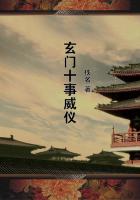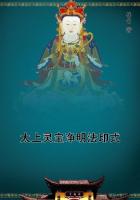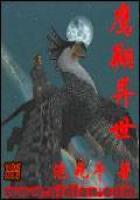Some ploughs, harrows, and other implements which had been imported at a former period were dragged out of the obscurity in which they had lain for several years, and an attempt was made to farm on scientific principles. The attempt was far from being completely successful, for the serfs--this was before the Emancipation--could not be made to work like regularly trained German labourers. In spite of all admonitions, threats, and punishments, they persisted in working slowly, listlessly, inaccurately, and occasionally they broke the new instruments from carelessness or some more culpable motive. Karl Karl'itch was not naturally a hard-hearted man, but he was very rigid in his notions of duty, and could be cruelly severe when his orders were not executed with an accuracy and punctuality that seemed to the Russian rustic mind mere useless pedantry. The serfs did not offer him any open opposition, and were always obsequiously respectful in their demeanour towards him, but they invariably frustrated his plans by their carelessness and stolid, passive resistance.
Thus arose that silent conflict and that smouldering mutual enmity which almost always result from the contact of the Teuton with the Slav. The serfs instinctively regretted the good old times, when they lived under the rough-and-ready patriarchal rule of their masters, assisted by a native "burmister," or overseer, who was one of themselves. The burmister had not always been honest in his dealings with them, and the master had often, when in anger, ordered severe punishments to be inflicted; but the burmister had not attempted to make them change their old habits, and had shut his eves to many little sins of emission and commission, whilst the master was always ready to assist them in difficulties, and commonly treated them in a kindly, familiar way. As the old Russian proverb has it, "Where danger is, there too is kindly forgiveness." Karl Karl'itch, on the contrary, was the personification of uncompassionate, inflexible law. Blind rage and compassionate kindliness were alike foreign to his system of government. If he had any feeling towards the serfs, it was one of chronic contempt. The word durak (blockhead) was constantly on his lips, and when any bit of work was well done, he took it as a matter of course, and never thought of giving a word of approval or encouragement.
When it became evident, in 1859, that the emancipation of the serfs was at hand, Karl Karl'itch confidently predicted that the country would inevitably go to ruin. He knew by experience that the peasants were lazy and improvident, even when they lived under the tutelage of a master, and with the fear of the rod before their eyes. What would they become when this guidance and salutary restraint should be removed? The prospect raised terrible forebodings in the mind of the worthy steward, who had his employer's interests really at heart; and these forebodings were considerably increased and intensified when he learned that the peasants were to receive by law the land which they occupied on sufferance, and which comprised about a half of the whole arable land of the estate. This arrangement he declared to be a dangerous and unjustifiable infraction of the sacred rights of property, which savoured strongly of communism, and could have but one practical result: the emancipated peasants would live by the cultivation of their own land, and would not consent on any terms to work for their former master.
In the few months which immediately followed the publication of the Emancipation Edict in 1861, Karl Karl'itch found much to confirm his most gloomy apprehensions. The peasants showed themselves dissatisfied with the privileges conferred upon them, and sought to evade the corresponding duties imposed on them by the new law. In vain he endeavoured, by exhortations, promises, and threats, to get the most necessary part of the field-work done, and showed the peasants the provision of the law enjoining them to obey and work as of old until some new arrangement should be made. To all his appeals they replied that, having been freed by the Tsar, they were no longer obliged to work for their former master; and he was at last forced to appeal to the authorities. This step had a certain effect, but the field-work was executed that year even worse than usual, and the harvest suffered in consequence.
Since that time things had gradually improved. The peasants had discovered that they could not support themselves and pay their taxes from the land ceded to them, and had accordingly consented to till the proprietor's fields for a moderate recompense. "These last two years," said Karl Karl'itch to me, with an air of honest self-satisfaction, "I have been able, after paying all expenses, to transmit little sums to the young master in St. Petersburg. It was certainly not much, but it shows that things are better than they were. Still, it is hard, uphill work. The peasants have not been improved by liberty. They now work less and drink more than they did in the times of serfage, and if you say a word to them they'll go away, and not work for you at all." Here Karl Karl'itch indemnified himself for his recent self-control in the presence of his workers by using a series of the strongest epithets which the combined languages of his native and of his adopted country could supply. "But laziness and drunkenness are not their only faults.
They let their cattle wander into our fields, and never lose an opportunity of stealing firewood from the forest."
"But you have now for such matters the rural justices of the peace," I ventured to suggest.















